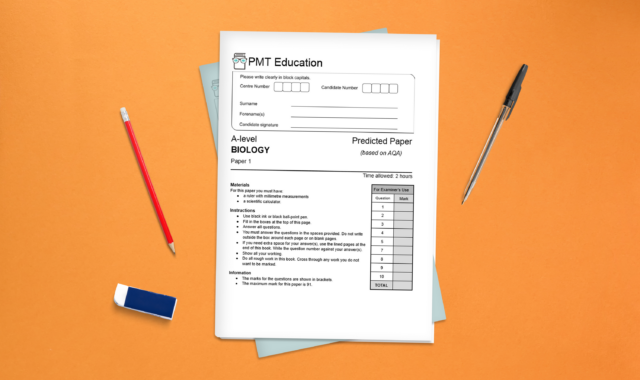Welcome to the PMT Education Blog, a hub catering to students, parents, and teachers alike. Here, you’ll find a wealth of articles and resources designed to empower all members of the educational community. Explore topics ranging from student success and parenting tips to teaching strategies and more.
 Students
Students
As exam season approaches, predicted papers are a smart addition to your revision toolkit. Created by experienced educators, they’re designed to reflect the structure and style of real GCSE or A Level exams. In this article, we explore how accurate predicted papers are, why they’re valuable, and how to use them effectively.
 Students
Students
Didn’t receive any university offers? Don’t fret – there are still plenty of pathways to explore. From UCAS Extra to considering vocational qualifications or a taking gap year, this guide offers you a multitude of options. It’s not the end of the road, just a different direction, and we’re here to help you navigate your options ahead with confidence.
 Students
Students
Securing an A* in A Level Maths isn’t just about working harder – it’s about working smarter. This guide covers everything from how grade boundaries work to the most effective revision techniques. Learn how to approach difficult topics, use the best practice resources, and develop the skills needed to maximise your marks.
 Parents
Parents
Navigating university offers can feel overwhelming, but with the right knowledge, you can confidently support your child’s journey. This guide covers everything you need to know, from understanding conditional and unconditional offers to making firm and insurance choices—and what to do if no offers come through.
 Teachers
Teachers
Ofsted’s 2025 education inspection framework promises major changes, from scrapping headline grades to introducing report cards and full graded inspections. This article unpacks the key proposals, explores their impact on teachers and students, and questions whether the new system truly addresses long-standing concerns.
 Tutors
Tutors
Integrating exam questions into tutoring sessions is essential for enhancing students’ exam performance. This article explores the importance of practising exam questions, optimal timing for their introduction, methods to incorporate them effectively into lessons, and strategies to tailor these approaches for diverse learners.
 Students
Students
Missed your grades? Changed your mind? Clearing 2025 could be your second chance at finding the right university course. This guide breaks down everything you need to know about the Clearing process, from key dates to how to apply—so you can make confident choices about your academic future.
 Parents
Parents
As A Level Results Day 2024 looms, anxiety grips students and parents alike. This guide equips you with essential information and valuable tips to navigate this pivotal day. Learn what UCAS has in store, decipher key terminology, and explore your child’s options, whether they meet, exceed, or miss their expectations.
 Students
Students
Skeletal formulae might seem tricky at first, but they’re the quickest and clearest way to represent organic molecules. In A Level Chemistry, recognising and drawing them is essential. This guide covers the key rules and provides step-by-step examples to help you master skeletal formulae with confidence.
 Parents
Parents
If you’re a parent or carer of a GCSE or A Level student, you’ve likely heard of predicted grades, but what do they really mean? In this article, we break down the importance of predicted grades, how they are calculated, and practical ways you can support your child in meeting (or even exceeding) their predicted grades.
 Teachers
Teachers
Considering supply teaching? Whether you’re looking for flexibility, experience, or a change of pace, this article covers everything you need to know. Learn how supply teaching works, what to look for in an agency, and the key skills needed for success. Plus, explore the pros and cons to help you decide if it’s the right fit for you.
 Tutors
Tutors
Asking questions is a powerful tool for tutors. This article explores effective questioning techniques that uncover student understanding, identify misconceptions, and encourage deeper thinking. Learn how to ask the right questions to keep students engaged and actively involved in their learning.